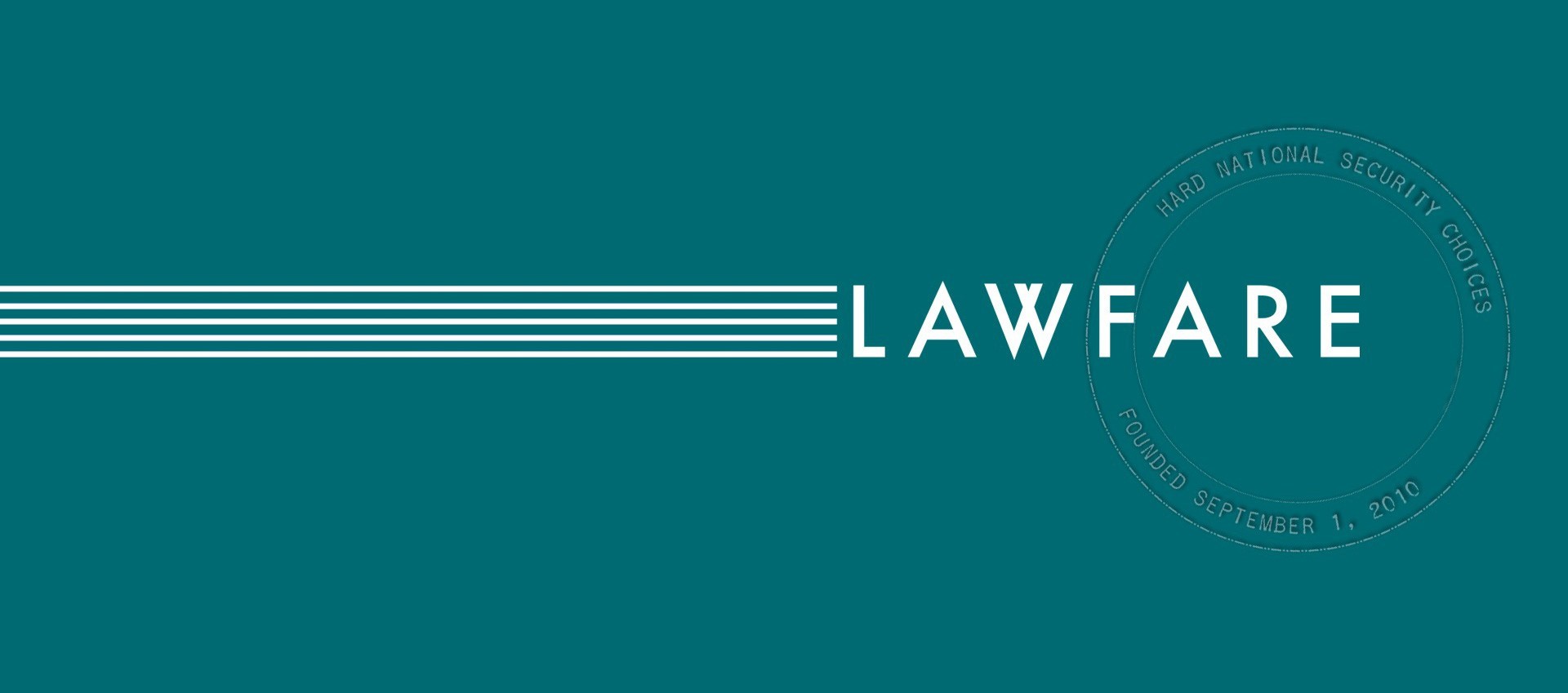The Week That Was: All of Lawfare in One Post
Published by The Lawfare Institute
in Cooperation With

Jack Goldsmith featured his and Curt Bradley’s op-ed in the New York Times on the bill with which Congress aims to expose Saudi Arabia to lawsuits in American courts for its alleged role in the 9/11 attacks.
John Bellinger followed up with Jack and Curt’s op-ed and shared some more information on sovereign immunity and the Justice Against Sponsors of Terrorism Act.
Christine Fair, Jacob Goldstein, and Ali Hamza questioned whether being smarter about Islam helps Muslims reject terrorism appeals.
Adam Klein wrote a series of posts on when the War on Terrorism will end. In Part 1, he summarized three key principles from past Supreme Court cases dealing with the end of wars. In his second post, he examined how terror groups challenge the traditional model of how wars end under law. In his final piece, Adam advocated for revising the AUMF so that it would expire on a specified date.
Helen Klein highlighted the nine Yemeni Guantanamo Bay detainees that were transferred to Saudi Arabia over the weekend.
Daniel Byman questioned what it means to sponsor terrorism.
Helen Klein featured the Pentagon’s proposal to amend the Military Commissions Act.
Benjamin Wittes released the “How Many Saudis Would You Sue if You Could Sue Saudis” edition of Rational Security.
Cody Poplin shared the recent Brookings event featuring Senator Chris Murphy discussing the United States and Saudi Arabia’s partnership.
Stewart Baker issued the latest Steptoe Cyberlaw Podcast featuring an interview with Eric Jensen.
Cody Poplin shared the latest Lawfare Podcast highlighting Daniel Weitzner and Benjamin Wittes’s conversation on going dark and the fallout from Apple vs. FBI.
Paul Rosenzweig wondered what would happen if the Feinstein-Burr encryption bill passes.
Susan Hennessey analyzed the proposed encryption legislation and argued that its critics that are blinded by outrage are blinded to the lessons.
Cody Poplin linked to the House Energy and Commerce Committee’s hearing on encryption and law enforcement.
Nicholas Weaver debuted his new series Nick Asks the NSA, asking about Signaling System 7.
David Aitel commented on the folly of “naming and shaming” Iran.
Yishai Schwartz posted the Supreme Court’s ruling in the Bank Markazi v. Peterson case.
Peter Margulies examined executive power and the SCOTUS argument on President Obama’s immigration plan.
Cody Poplin flagged the Office of the Director of National Intelligence’s release of three FISC opinions on a pen register and trap-and-trace case.
Sloane Speakman analyzed the surprising success of Syria’s quasi-ceasefire.
Laura Dean shared the latest dispatch in her series Syria Displaced commenting on how the Jordanian government is “between two fires.”
Chris Mirasola released the newest Water Wars highlighting how China is moving to retake the high ground.
Ellen Scholl issued the latest edition of Hot Commodities featuring some disagreements, droughts, and disasters.
Benjamin Wittes and Jack Goldsmith issued a reminder for the next Hoover Book Soiree on April 26, featuring Juliette Kayyem and her new book Security Mom. Jack also featured a piece written by Juliette Kayyem in the Washington Post that highlights the importance of resiliency to any effective counterterrorism strategy, one of the main themes in her new book.
And that was the week that was.





